- Part 1: What is Popcorn Time?
- Part 2: What is a torrent?
- Part 3: Why am I at risk?
- Part 4: What is a VPN?
- Part 5: Are all VPNs the same?
- Part 6: How do I stay protected?
Part 1: What Is Popcorn Time?
Popcorn Time is, essentially, a torrent client (look to Part 2 for further explanation on torrents) similar to µTorrent, BitTorrent and Azure. Popcorn Time started as an open source project that has been molded and developed into multiple forks. These forks, which are different versions, are then further developed by separate teams and most of time distributed under the moniker "Popcorn Time". What this means is that there are multiple forks of Popcorn Time available. Some open source (and thus really considered safe) and some not. There really are two main forks, and we are one of those two. We are Popcorn Time from www.popcorntime.io. Our application is completely open source and you can see our code on our Git repository. It is still based on the code that the guys who invented Popcorn Time wrote, and we're proud to say that.
Part 2: What Is a Torrent?
A torrent is a file which contains information and the locations of another file that is located on other computers around the world. Think about it as a shipping service for a cell phone manufacturer. The manufacturer requires parts to put together a cell phone. The torrent knows which parts come from which supplier and brings them all to the same location – the manufacturer. The manufacturer, once they receive all the parts, can then put the cell phone together and send it to a reseller. The reseller than pays for these parts (this part is crucial!). So it goes like this:
cell phone parts > shipping service > manufacturer > reseller > payment
In parallel for torrents:
file parts > torrent > computer > you > upload
So the torrent collects the information about the file parts, sends them to your computer and puts them together for your use. But, the caveat with this process is the uploading. You have to give some to get some.
This is where the real danger in torrents and Popcorn Time comes to play (look to Part 3 for further explanations on the risks associated with torrents). As long as you are downloading a file or streaming from Popcorn Time, you are also actively uploading that file back to other users (or paying for your product in some sense). At this point, you become one of the cell phone part suppliers.
Part 3: Why Am I at Risk?
As with explained in Part 2, data that is downloaded is also uploaded with a torrent. This is usually not a 1:1 relationship as upload speeds are often slower than download speeds. By the time you've finished downloading a file off a torrent or streaming a movie from Popcorn Time, you might have uploaded only a small percentage of the movie to other users but you have still shared material. That uploading is illegal in a lot of countries in the world. Not every country has rules that make it possible to sue the uploaders, but they definitely don't like it.
If you're a US citizen, then you might want to look into DMCA. Since it says that helping share copyrighted materials (movies, music, etc. that are not public domain or allow sharing) is illegal. Copyright violators may be sued, and if they lose, they may be ordered to pay money damages ranging from $200 to $150,000 to several million dollars to the owner of the copyright. There may also be criminal penalties, such as imprisonment.
Other countries like Germany and Australia have also had cases of people being forced to pay. If you're not sure what the rules in your country are, then it is best to protect yourself with the likes of a VPN (look to Part 4 for further information on VPNs).
Part 4: What Is a VPN?
A Virtual Private Network, known as VPN for short, is a subnetwork of the internet which allows you to connect to private networks like your work office. They can also be used to reroute your network traffic (any connection coming from your computer, cell phone or any device using the internet) to another location such as New Zealand or the Netherlands. Your IP address (think of this as your mailing address for your specific device) will be "tunneled" to another location so you maintain online privacy and anonymity. Refer here for more in depth information on what a VPN is useful for and how it works.
Part 5: Are All VPNs the Same?
No. VPNs come in a few flavors. There are VPNs from your employer or university. These allow you to connect to your company and university networks while being away from the actual sites and campuses. You can go as far as to create your own VPN. Then there are free and paid for services. We would recommend against most free services as they all still collect logs of your network traffic. If they are subpoenaed, they will be forced to give up these said logs and thus your network traffic can still be traced. In this case, you're only anonymous until you aren't. Most paid services have the same issues as described with the free services. It is imperative that you select a VPN which does not keep traffic logs and there are only a few of these.
Popcorn Time has a built-in VPN client which costs a few dollars per month. They don't keep logs and their support seems to respond pretty quickly. (Bonus: They also give you access to some geo-blocked website like Pandora and the BBC iPlayer.) You can get the Popcorn Time offer here. If you don't think VPN.ht is right for you, then you can take a look at the ultimate VPN review site: BestVPN.
Part 6: How Do I Stay Protected?
The best thing you can do is purchase a VPN (usually cheaper if bought for a whole year of service) and remain connected anytime you use Popcorn Time or any other torrent clients. Once you purchase a service you simply connect to the VPN and then open up Popcorn Time, or if you use VPN.ht you use the built-in login in the application. This will anonymize your download/stream and upload data. You're still transferring the data but from another IP address that (if you use the right VPNs) will be untraceable by the feds, ISP, DMCA or any other agency.
Note: this article is a modified version of Reddit user tohrd2cntrl's version.
Just updated your iPhone? You'll find new emoji, enhanced security, podcast transcripts, Apple Cash virtual numbers, and other useful features. There are even new additions hidden within Safari. Find out what's new and changed on your iPhone with the iOS 17.4 update.





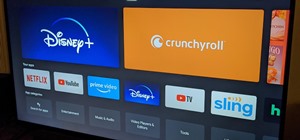


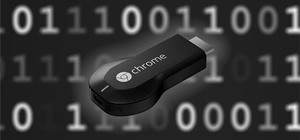
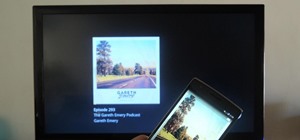

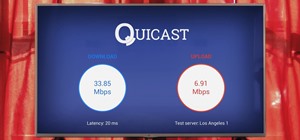


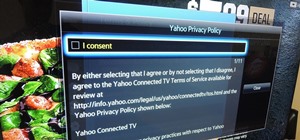
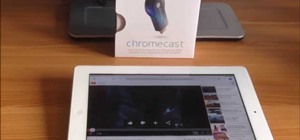

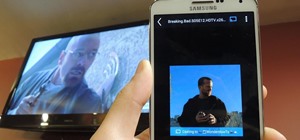


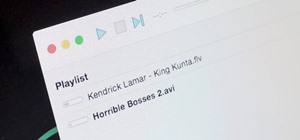
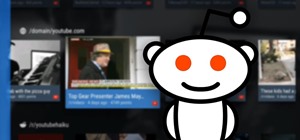

Be the First to Comment
Share Your Thoughts